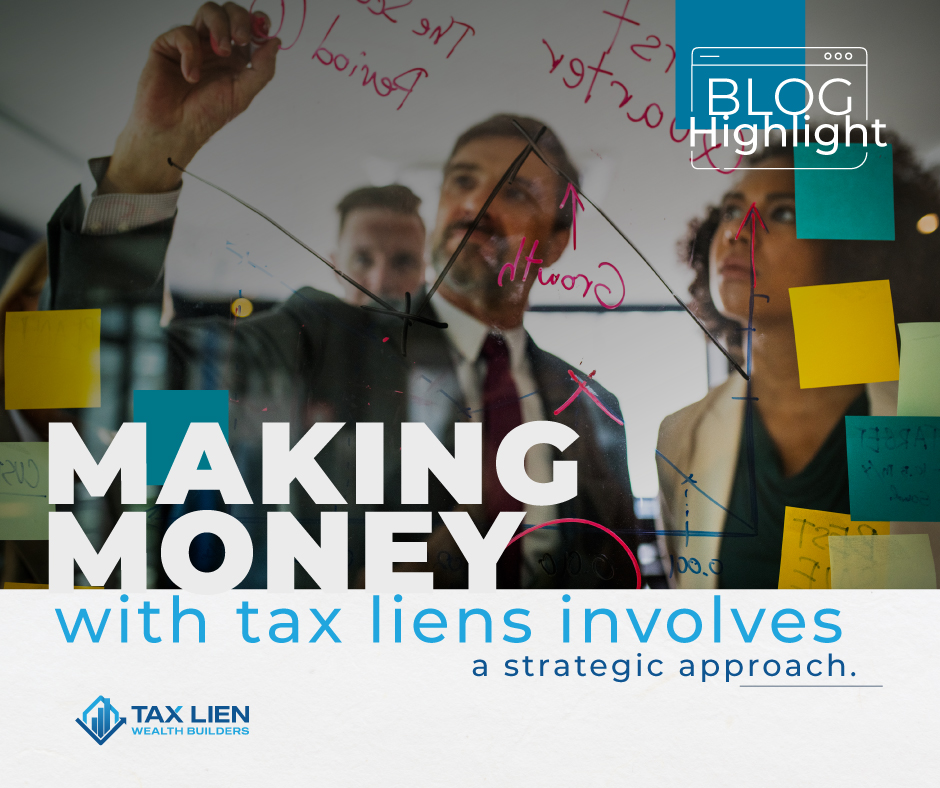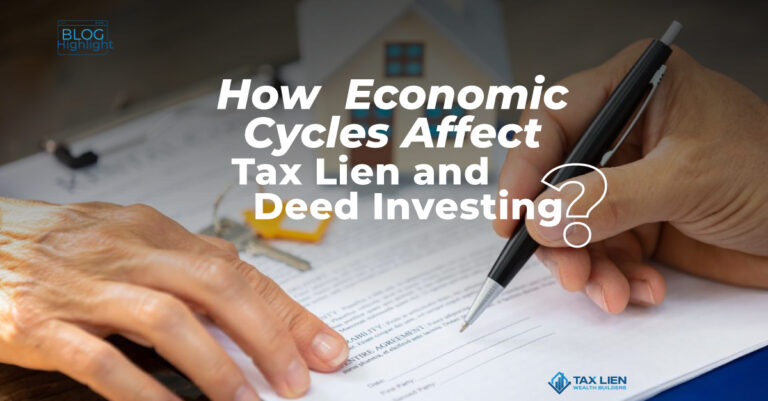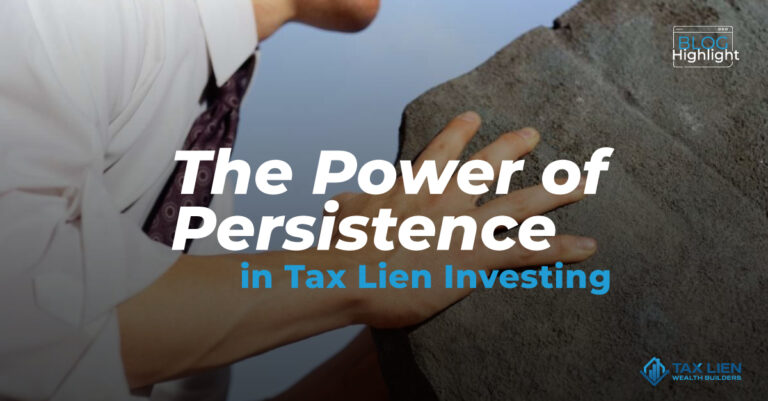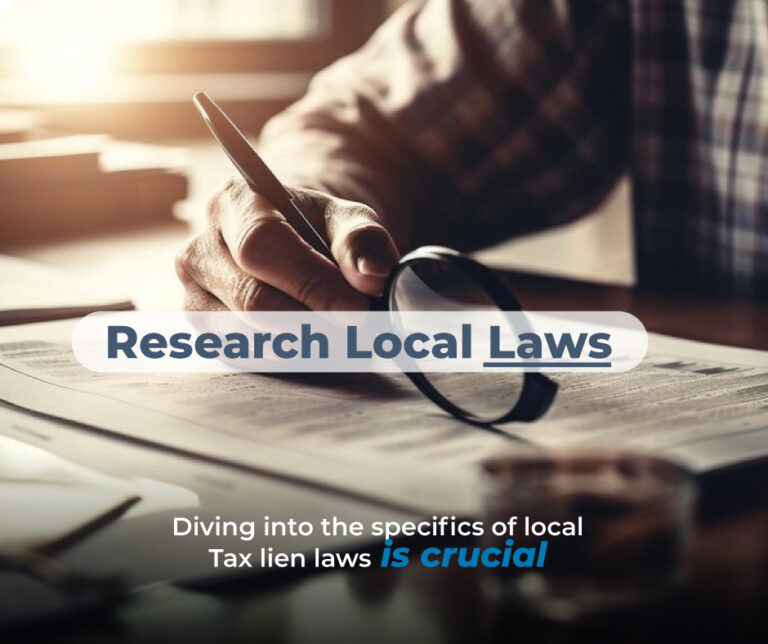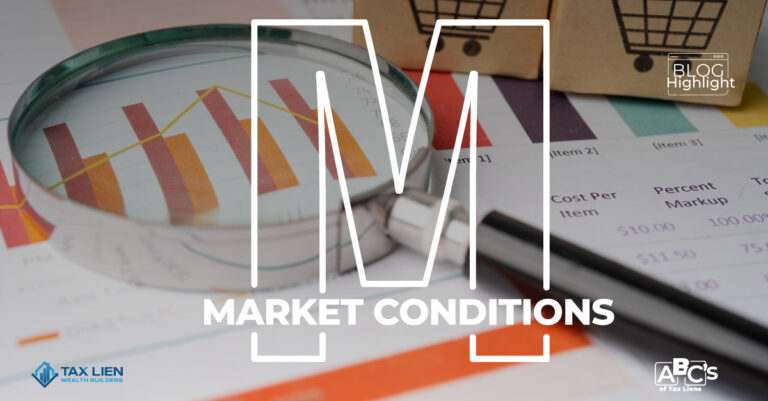A Beginner’s Guide To Tax Liens
When a property owner fails to pay their taxes, the county government steps in and puts a lien on the property.
They (the county) do this because the revenue from property taxes helps fund infrastructure like schools, the fire department, and the police.
The local government then places those liens up for auction.
For an investor like you, two things can happen after you buy a tax lien.
A: You either get your investment back with a nice chunk of interest or
B: You might end up owning the property.
Here’s what you need to keep an eye on to make sense of it all:
Tax Lien Rules Change From One County To Another
Your first mission is to become a mini-expert on the rules in your area of interest. To start your research, visit the county Tax Collector’s website.
Find Where The Action Is
Auctions are where you’ll get your hands on tax liens, and they can be either in a room full of eager bidders, or they can be listed online on a website.
Check the county Clerk of Court’s website to find out when and where you can join the fray.
How To Be A Profitable Tax Lien Investor
Set yourself a budget. Tax liens range from “why not?” prices to “let’s think about this” levels. Also, don’t just show up with your wallet; do a little digging into what you’re buying to avoid surprise “oh no” moments.
If you play your cards right and win a bid, congrats! You’re now holding a ticket that could lead to handsome returns (up to 25% per annum in some states!)
Next, you wait. The property has a redemption period during which the owner can pay off the property taxes plus any penalties and keep the property.
Most of the time, the owner pays up, and you get your investment back with interest.
If the clock runs out and the property owner hasn’t paid up, you might have the option to foreclose. This is where things get a bit more complicated, so it might be a good time to chat with someone who’s been down this road before.
But Watch Your Step…
Every investment has its risks. In the case of tax liens, you might face issues like property damage or other financial hiccups. A good rule of thumb is to always thoroughly check the property before committing.
Don’t Forget To Diversify
Don’t put all your eggs in one basket. Spread your investments across different properties and locations to shield yourself from unexpected downturns. And most importantly, learn as you go.
Each investment teaches you something new, refining your strategy for the next round.
When a property owner fails to pay their taxes, the county government steps in and puts a lien on the property.
They (the county) do this because the revenue from property taxes helps fund infrastructure like schools, the fire department, and the police.
The local government then places those liens up for auction.
For an investor like you, two things can happen after you buy a tax lien.
A: You either get your investment back with a nice chunk of interest or
B: You might end up owning the property.
Here’s what you need to keep an eye on to make sense of it all:
Tax Lien Rules Change From One County To Another
Your first mission is to become a mini-expert on the rules in your area of interest. To start your research, visit the county Tax Collector’s website.
Find Where The Action Is
Auctions are where you’ll get your hands on tax liens, and they can be either in a room full of eager bidders, or they can be listed online on a website.
Check the county Clerk of Court’s website to find out when and where you can join the fray.
How To Be A Profitable Tax Lien Investor
Set yourself a budget. Tax liens range from “why not?” prices to “let’s think about this” levels. Also, don’t just show up with your wallet; do a little digging into what you’re buying to avoid surprise “oh no” moments.
If you play your cards right and win a bid, congrats! You’re now holding a ticket that could lead to handsome returns (up to 25% per annul in some states!)
Next, you wait. The property has a redemption period during which the owner can pay off the property taxes plus any penalties and keep the property.
Most of the time, the owner pays up, and you get your investment back with interest.
If the clock runs out and the property owner hasn’t paid up, you might have the option to foreclose. This is where things get a bit more complicated, so it might be a good time to chat with someone who’s been down this road before.
But Watch Your Step…
Every investment has its risks. In the case of tax liens, you might face issues like property damage or other financial hiccups. A good rule of thumb is to always thoroughly check the property before committing.
Don’t Forget To Diversify
Don’t put all your eggs in one basket. Spread your investments across different properties and locations to shield yourself from unexpected downturns. And most importantly, learn as you go.
Each investment teaches you something new, refining your strategy for the next round.
—Happy investing!

